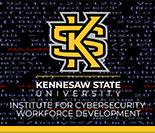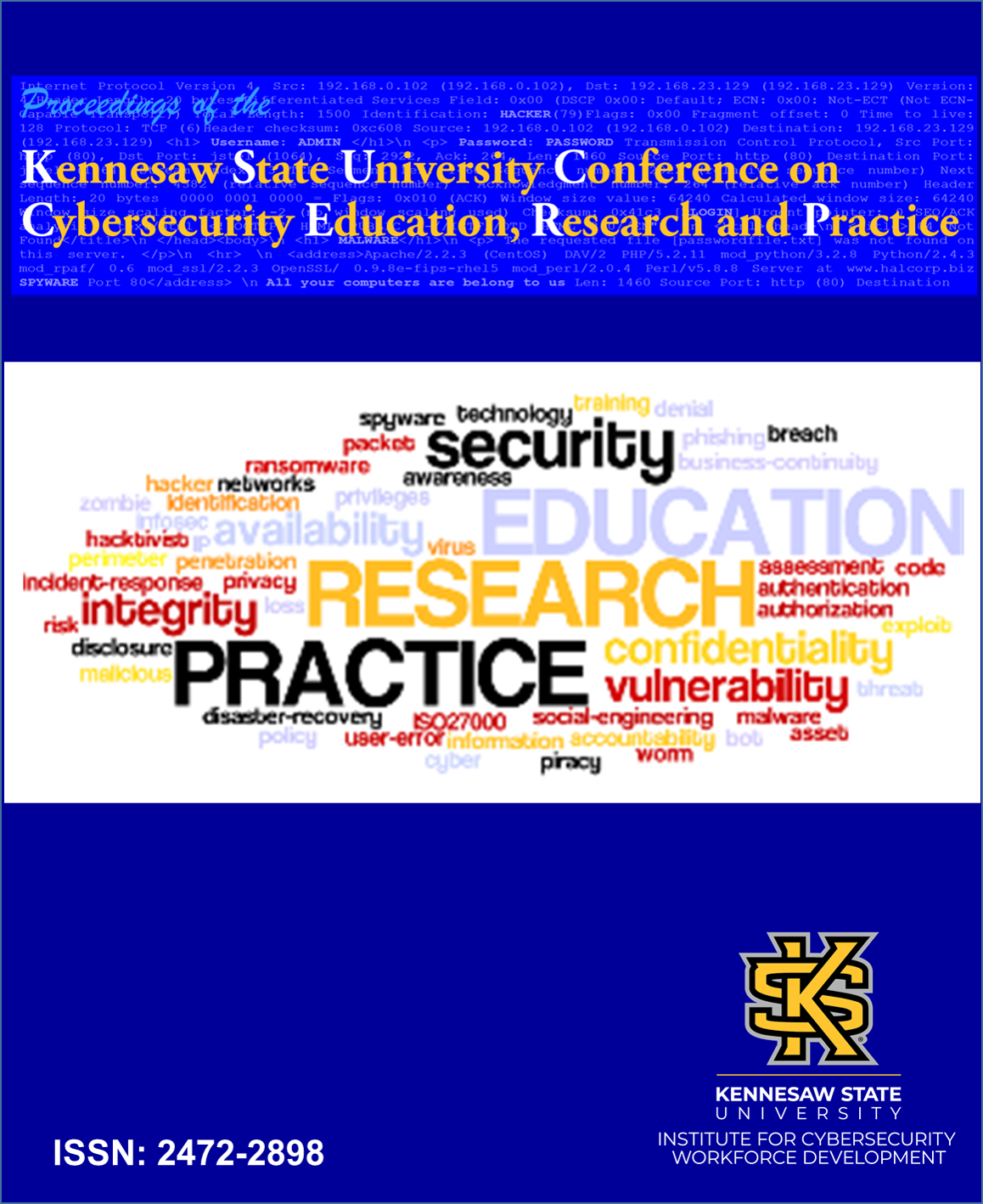Start Date
October 2018
End Date
October 2018
Location
KC 400
Abstract
ABSTRACT
The purpose of this paper is to discuss a curriculum design that employs Kolb’s Experiential Learning Theory stages and Kolb’s Learning Styles in four consecutive class sessions. The challenge each class is to present students with perplexing and often frustrating network problems that someday might be encountered on the job. By using Kolb’s theory, students address those problems from the perspective of each learning style, while passing through each phase of the learning cycle. As a result, students gain stronger cognitive thinking skills and hands-on troubleshooting skills in preparation for work as network administrators or cybersecurity analysts.
Included in
Adult and Continuing Education Commons, Curriculum and Instruction Commons, Information Security Commons, Management Information Systems Commons, Technology and Innovation Commons, Vocational Education Commons
Cybersecurity Education Employing Experiential Learning
KC 400
ABSTRACT
The purpose of this paper is to discuss a curriculum design that employs Kolb’s Experiential Learning Theory stages and Kolb’s Learning Styles in four consecutive class sessions. The challenge each class is to present students with perplexing and often frustrating network problems that someday might be encountered on the job. By using Kolb’s theory, students address those problems from the perspective of each learning style, while passing through each phase of the learning cycle. As a result, students gain stronger cognitive thinking skills and hands-on troubleshooting skills in preparation for work as network administrators or cybersecurity analysts.


